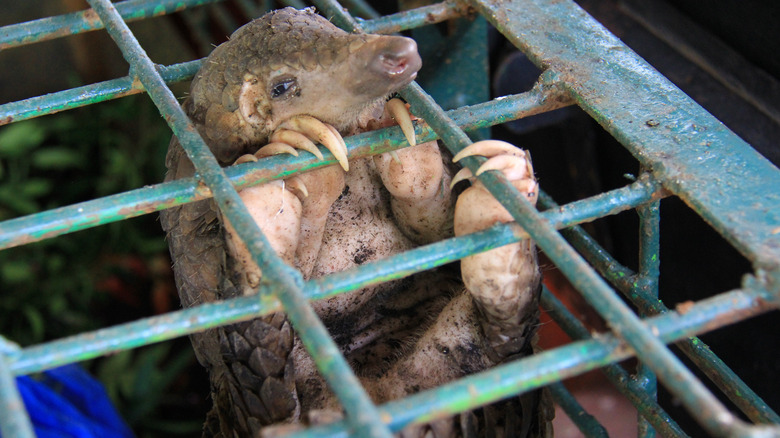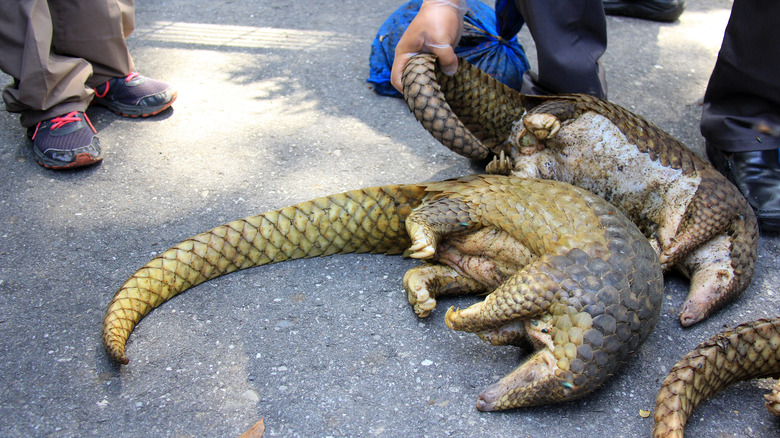The Sad Truth About Pangolin Trafficking
Through West and Central Africa and along the dotted rural landscapes of Vietnam, a rare endangered mammal is robbed of its life and traded for its scales. CNN reports that all of this is happening right under the noses of the very authorities who claim to be cracking down on the illegal wildlife trafficking trade. Sadly, as elephant ivory stock plummets, poachers have lined their routes and their pockets with the blood of the pangolin.
Chained and caged by the millions, transported in the backs of cars beneath bags of slithering snakes, and hurled to their doom by wildlife crime leaders who hide their true identities behind ominous monikers like "Iron Face" and "Golden Scales"; pangolins are likely the most trafficked mammal on the planet (via National Geographic). It is estimated that over the course of the past 10 years, at least 1 million pangolins have wound up in the clutches of criminal wildlife traffickers. Those that are fortunate enough to escape often die in the rehab centers under a similar version of captivity.
Pangolins are poached for their meat and scales
It might seem hard to imagine, but these near-mythical creatures that resemble a cross between a crocodile, armadillo, and dinosaur once lived in abundance and relative peace. According to CNN, little is known about these reclusive mammals in regards to diet and lifestyle. What is clear is that humans are their biggest — and perhaps even their only — predator. Such a fact is statistically significant because, at the hands of humanity, the pangolin population has decreased by approximately 50%.
At restaurant tables, pangolin meat is regarded as a delicacy, a risqué sort of "VIP experience." While said to be illegal, many Vietnamese eateries display pangolin openly on menus and in jars beneath velvet coverings. At medicine shops, the highly sought-after pangolin scales and blood are said to cure all, from lactation to blood circulation to cancer (via National Geographic). However, the scales of this elusive mammal are made from a commonplace material, keratin, which is notably also found in fingernails, hair, and horns. Sadly, very few people have heard of the pangolin, which is why it is at risk of being silently ushered into extinction.

